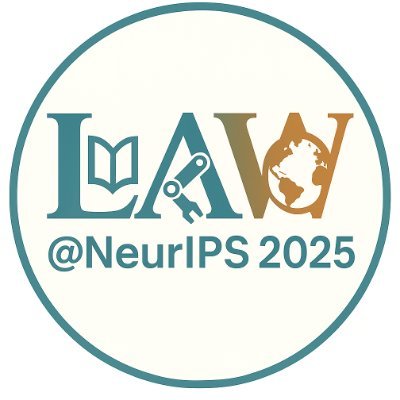
Jacob Andreas
@jacobandreas
Followers
21K
Following
1K
Media
86
Statuses
3K
Teaching computers to read. Assoc. prof @MITEECS / @MIT_CSAIL / @NLP_MIT (he/him). https://t.co/5kCnXHjtlY https://t.co/2A3qF5vdJw
Cambridge, MA
Joined March 2007
👉 New preprint! Current AI systems are great at answering questions, but how do we get them to *ask* better ones? I'm especially excited about the collaborative game paradigm Gabe & Valerio developed as a tool for studying big Qs around AI assistance & scientific discovery.
Do AI agents ask good questions? We built “Collaborative Battleship” to find out—and discovered that weaker LMs + Bayesian inference can beat GPT-5 at 1% of the cost. Paper, code & demos: https://t.co/lV76HRKR3d Here's what we learned about building rational information-seeking
1
8
98
When your vision model performs image recognition, which visual cues is it actually relying on? In our @NeurIPSConf paper, we introduce a Self-reflective Automated Interpretability Agent (SAIA) that uncovers these attribute reliances by approaching the task like a scientist.
1
8
11
🧵 LoRA vs full fine-tuning: same performance ≠ same solution. Our NeurIPS ‘25 paper 🎉shows that LoRA and full fine-tuning, even when equally well fit, learn structurally different solutions and that LoRA forgets less and can be made even better (lesser forgetting) by a simple
18
244
2K
Do AI agents ask good questions? We built “Collaborative Battleship” to find out—and discovered that weaker LMs + Bayesian inference can beat GPT-5 at 1% of the cost. Paper, code & demos: https://t.co/lV76HRKR3d Here's what we learned about building rational information-seeking
4
31
154
👉 New preprint! We have lots of great benchmarks for tasks where it's possible, in principle, for models to get all the answers exactly correct. But what about tasks that *intrinsically* require reasoning about uncertain facts and quantities?
🚨 New paper up on how LLMs reason under uncertainty! 🎲 Many real world uses of LLMs are characterized by the unknown—not only are the models prompted with partial information, but often even humans don't know the "right answer" to the questions asked. Yet most LLM evals focus
1
2
64
🚨 New paper up on how LLMs reason under uncertainty! 🎲 Many real world uses of LLMs are characterized by the unknown—not only are the models prompted with partial information, but often even humans don't know the "right answer" to the questions asked. Yet most LLM evals focus
6
23
128
Tired: hindsight goal relabeling Inspired: hindsight everything relabeling
convert your LLM agent’s unsuccessful interactions into synthetic positive examples using hindsight trajectory rewriting! 📜 https://t.co/Gj5t6TAtEM 🧑💻 https://t.co/DEJjfIA8Ud
2
9
101
convert your LLM agent’s unsuccessful interactions into synthetic positive examples using hindsight trajectory rewriting! 📜 https://t.co/Gj5t6TAtEM 🧑💻 https://t.co/DEJjfIA8Ud
5
26
175
👉 New preprint! Training reasoning models to be *wrong* in human-like ways -> inference of student misconceptions and tools for generating better educational materials (w/ some general techniques for jointly training reasoners for forward & inverse problems)
Can LLMs reason like a student? 👩🏻🎓📚✏️ For educational tools like AI tutors, modeling how students make mistakes is crucial. But current LLMs are much worse at simulating student errors ❌ than performing correct ✅ reasoning. We try to fix that with our method MISTAKE 🤭👇
1
12
104
Can LLMs reason like a student? 👩🏻🎓📚✏️ For educational tools like AI tutors, modeling how students make mistakes is crucial. But current LLMs are much worse at simulating student errors ❌ than performing correct ✅ reasoning. We try to fix that with our method MISTAKE 🤭👇
11
55
337
New preprint on AI/CS education‼️ We ask what we can learn abt both code & coders (students learning to code) by training on their full coding traces. Hint: we get richer models of *diverse student behavior* that are also more *generalizable & controllable*! Thread below ⬇️
New preprint on AI + Education! 🍎 “Modeling Student Learning with 3.8M Program Traces” 💻 When students code, their edits tell a story about their reasoning process: exploring, debugging, and tinkering 🧠 What can LMs learn from training on student edit sequences? 📚
1
14
84
New preprint on AI + Education! 🍎 “Modeling Student Learning with 3.8M Program Traces” 💻 When students code, their edits tell a story about their reasoning process: exploring, debugging, and tinkering 🧠 What can LMs learn from training on student edit sequences? 📚
9
33
210
Today marks an important milestone. I’m launching Percepta together with @htaneja, @hirshjain, @tmathew0309, Radha Jain, @marisbest2, @KonstDaskalakis and an incredible team, with the goal of bringing AI to the core industries that run our economy. For AI to deliver
percepta.ai
Transforming critical institutions using applied AI. Let's harness the frontier.
10
20
83
📢 Thrilled to announce LAW 2025 workshop, Bridging Language, Agent, and World Models, at #NeurIPS2025 this December in San Diego! 🌴🏖️ 🎉 Join us in exploring the exciting intersection of #LLMs, #Agents, #WorldModels! 🧠🤖🌍 🔗 https://t.co/JUNeEOksgP
#ML #AI #GenerativeAI 1/
1
12
27
fun new paper training LLMs to analyze their own uncertainty and be more calibrated in their confidence!
arxiv.org
When language models (LMs) are trained via reinforcement learning (RL) to generate natural language "reasoning chains", their performance improves on a variety of difficult question answering...
🚨New Paper!🚨 We trained reasoning LLMs to reason about what they don't know. o1-style reasoning training improves accuracy but produces overconfident models that hallucinate more. Meet RLCR: a simple RL method that trains LLMs to reason and reflect on their uncertainty --
1
10
99
New paper on emergent reasoning about uncertainty in RL! It was great to move the needle a bit on an important problem - and very excited for future work in the space. It was an absolute pleasure working with @MehulDamani2 @ishapuri101 @IdanShenfeld @jacobandreas
🚨New Paper!🚨 We trained reasoning LLMs to reason about what they don't know. o1-style reasoning training improves accuracy but produces overconfident models that hallucinate more. Meet RLCR: a simple RL method that trains LLMs to reason and reflect on their uncertainty --
0
2
10
RLCR helps, but is far from solving the problem. I think there's a ton of room to develop improved post-training procedures to bring LMs external expressions of certainty into alignment with their internal representations of confidence, within & across samples.
2
0
5
reducing hallucination (esp. on OOD) tasks. My favorite figure is this one, which shows the sum of the probabilities a reasoning LMs assign to mutually exclusive answers across reasoning chains. On some questions, models assign full confidence to 10+ different answers! Here...
1
0
3
👉 New preprint! Today, many the biggest challenges in LM post-training aren't just about correctness, but rather consistency & coherence across interactions. This paper tackles some of these issues by optimizing reasoning LMs for calibration rather than accuracy...
🚨New Paper!🚨 We trained reasoning LLMs to reason about what they don't know. o1-style reasoning training improves accuracy but produces overconfident models that hallucinate more. Meet RLCR: a simple RL method that trains LLMs to reason and reflect on their uncertainty --
3
11
108
🚨New Paper!🚨 We trained reasoning LLMs to reason about what they don't know. o1-style reasoning training improves accuracy but produces overconfident models that hallucinate more. Meet RLCR: a simple RL method that trains LLMs to reason and reflect on their uncertainty --
13
221
846













